Prominent Iranian Researcher Sentenced To Nine Years In Prison
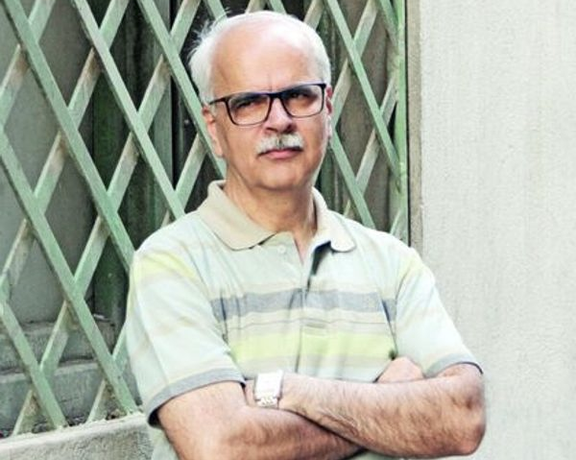
Reports say a revolutionary court in Tehran has sentenced Saeed Madani, a prominent political commentator and researcher, to nine years in prison.

Reports say a revolutionary court in Tehran has sentenced Saeed Madani, a prominent political commentator and researcher, to nine years in prison.
Madani was arrested in May accused of “formation and management of anti-government groups”, “holding gathering and conspiring to commit crimes against the country’s security" and "propaganda against the Islamic Republic of Iran”.
Madani − whose research interests include poverty, drug addiction, child abuse, and prostitution − belongs to the banned Nationalist-Religious Alliance, a small non-violent religious opposition groups that favors political reform and welfare economics.
He has been sentenced and imprisoned several times for membership in the group and for “propaganda against the state.” In 2016, he was exiled to the southern port city of Bandar Abbas after four years of an eight-year prison sentence served at Evin prison, Tehran.
Iran has arrested hundreds of university students, writers and cultural leaders during 100 days of anti-regime protests that began in September.
He has been associated with various opposition groups in Iran, and in response to his criticism of the government’s handling of the COVID pandemic, he was stopped by the IRGC in January this year from traveling from Tehran to take up a post at Yale University.
Madani, 61, a sociology professor at Tehran’s Allameh Tabatabai University, has published several books on social issues in Iran.

Some pundits in Iran are reminding the hardliners that a few months ago they were predicting Europe’s agony in winter cold, while now Iran faces energy shortage.
Heshmatollah Falahatpisheh, an outspoken critic of the government in foreign policy, nuclear talks and energy, says predictions by Iranian officials that Europe would plunge in cold and darkness this winter and they would run back to nuclear negotiations with Iran have turned out to be "illusions."
Some Iranian officials including Mohammad Marandi, who accompanies Iranian nuclear negotiators, have been saying since last summer that "a hard winter in Europe" will force European powers to come back to the negotiating table. Marandi had predicted: "The winter is coming, and the EU will have to face a paralyzing energy crisis."
The hardliner editor of the ultraconservative Kayhan daily had also said in the summer that after "only two months" the United States and Europe will beg Iran to resume the negotiations and will surrender to Iran's terms.
The flawed argument was being used to justify Tehran’s hard position after 18 months of multilateral talks to revive the 2015 nuclear deal with the West, which would lift crippling sanctions imposed on Iran.
Hardline officials were making these claims while Europe needed natural gas, something Iran does not produce enough of to export and has no way of shipping it to Europe. On the contrary, Iran is suffering from a natural gas shortage this winter like every year. It shut down several cement factories this week only to save gas for homes.
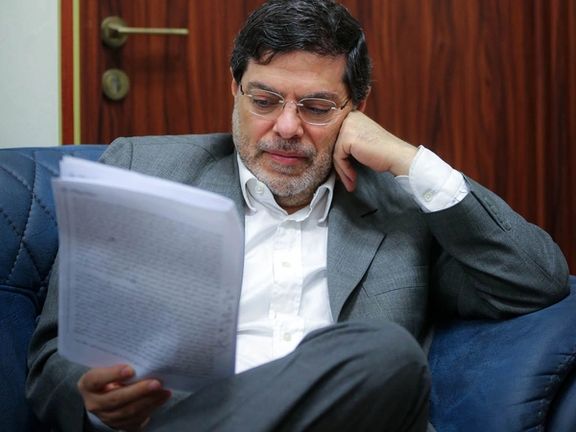
Falahatpisheh, the former head of parliament's foreign policy and national security committee also criticized Iranian officials in an interview with the moderate conservative Khabar Online website, saying that "They are selling Iran's oil at a discounted price and still take pride in it."
The former lawmaker said that Iranian officials and hardliner commentators have been taken by surprise as their misplaced predictions in foreign policy did not come true.
Falahatpisheh also noted that while Iran counts on Russia as a "strategic ally," Russia has been selling oil at a discounted price, and Iran has no solution for its oil other than offering even more discounts than Russia. He added that Iranian officials take pride in selling oil despite US sanctions and call it a "victory", while what they are doing is wasting Iran's wealth to the tune of millions of dollars a day.
Tejarat (Commerce) Daily in Tehran quoted some oil market experts as saying that Iran has been lately selling its oil at the price of $37 per barrel while the market price for oil is around $79.25 per barrel. According to estimates, the production of every barrel of oil costs Iran nearly 30 dollars due to its aging equipment after years of token investments.
On the other hand, Iran's neighbor, Saudi Arabia invested some $82 billion in infrastructure in the past ten years to preserve its supremacy in the oil market.
Falahatpisheh in his interview argued that "Iran needs a new spirit in its foreign policy. In today's world only the countries are successful that have managed to reduce tensions with other countries." He suggested that Iran's first measure should be to settle differences with other countries and take serious steps toward détente. He said: "I believe the US and EU's current policies will not last forever. These policies are mainly meant to reduce Iran's bargaining power. However, the West will return to negotiations when and if they see that Iran has resolved its internal crisis and everyone, including all Iranian officials, are behaving in a way to serve the country's national interests."
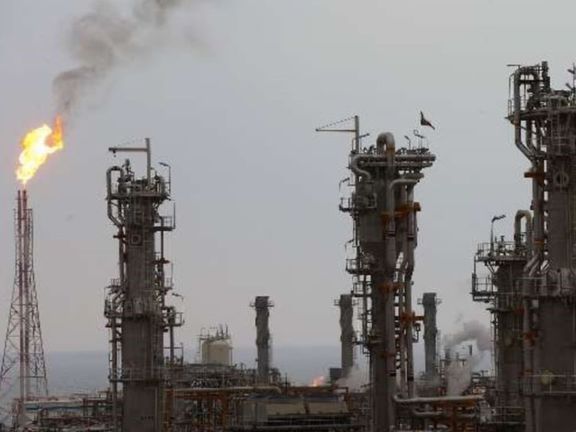
Cement factories in Iran face serious problems due to lack of natural gas and other fossil fuels in winter, an industry insider told ILNA news website in Tehran.
Ali-Akbar Alvandian, secretary of cement producers’ association told the website that natural gas flows to many factories have been reduced and the alternative fuel, mazut, which is a dirty variety of diesel is also hard to procure.
Iran, which has the world’s second largest natural gas reserves is unable to meet domestic demand, especially in cold and hot months when energy consumption rises to its highest levels.
Power generation stations also receive less gas and resort to burning the highly polluting mazut, which has blanketed Iranian cities in a thick layer of pollution in recent weeks. As a result, the government has restricted mazut shipments to cement and other factories.
Lack of natural gas also hurts Iran’s petrochemical industry, which is a significant source of export earnings.
Iran needs around $40 billion of investment and Western technology to boost its gas production, which has been gradually falling. At the same time due to extremely low prices for consumers, gas and electricity usage increases by around 6 percent annually.
Without resolving its disputes with Western powers, Iran would not be able to provide the investment and acquire the technology needed for revitalizing its natural gas production.
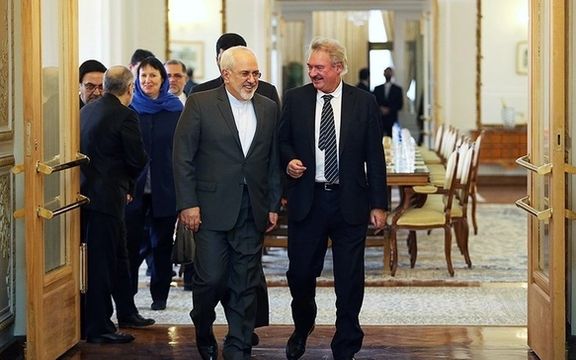
Luxembourg’s Foreign Ministry says a resident of the country of Iranian descent has been arrested in the Islamic Republic and sentenced to death.
Foreign Minister Jean Asselborn spoke on the phone with his Iranian counterpart Hossein Amir- Abdollahian to discuss the case and speak about the situation in the country.
According to the statement from the Luxembourg Foreign Office, Minister Asselborn supports the efforts of the EU and member countries to stand up for the rights of Iranian demonstrators. Luxembourg opposes the death penalty without exception, calling it a cruel and inhuman punishment.
In the readout of the conversation issued by the Islamic Republic, there is no mention of the Luxembourger who faces execution. The Iranian foreign minister only said that he voiced Tehran’s willingness for closer relations with Luxembourg in various fields.
Protests have been raging in Iran for over three months with people seeking the fall of the clerical regime. The Islamic Republic has been cracking down on protesters while blaming foreign countries for the unrest.
On September 30, Iran’s Intelligence Ministry announced the detention of at least nine non-Iranian citizens from Germany, Poland, Italy, France, the Netherlands and Sweden. On October 20, Fars New Agency, which is affiliated with the Revolutionary Guard, said “citizens of 14 countries, including the United States, Russia, Austria, France, the United Kingdom, and Afghanistan, have been arrested in recent riots in Iran.”
The Regime has sentenced dozens of protesters to death and has hanged two of them so far with many more facing imminent execution.
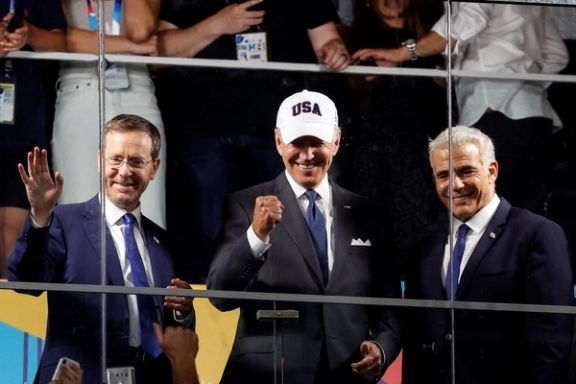
US Secretary of State Antony Biden said Friday the administration of President Joe Biden had concentrated on “rebuilding and revitalizing America’s alliances.”
Speaking at a press briefing, Blinken said the US was working alongside “the many countries that share our fundamental interests and values.” In the Middle East he cited Saudi Arabia, Egypt, Bahrain, Morocco, and Israel. Blinken extended “congratulations to Prime Minister [Benjamin] Netanyahu on announcing the formation of a new government.”
Netanyahu's relations with the Biden Administration was not as close as his friendship with former President Donald Trump and tension with Palestinians could spike because of the influence of religious parties in his government.
“Nato has never been stronger or more united,” Blinken said. “We doubled the number of battlegroups along Nato’s eastern flank…the Russian war machine is in dire straits.”
Both Iran and Russia, Blinken said, shunned diplomatic solutions. “We have to see some meaningful evidence that Russia is prepared to actually negotiate and negotiate,” he said.
Blinken acknowledged Iran had abided by its commitments under the 2015 Iran nuclear agreement, the JCPOA (Joint Comprehensive Plan of Action), until the US in 2018 left the JCPOA. But he attributed the failure of talks aimed at reviving the JCPOA solely to Iran not being “willing or able to do what’s necessary.”
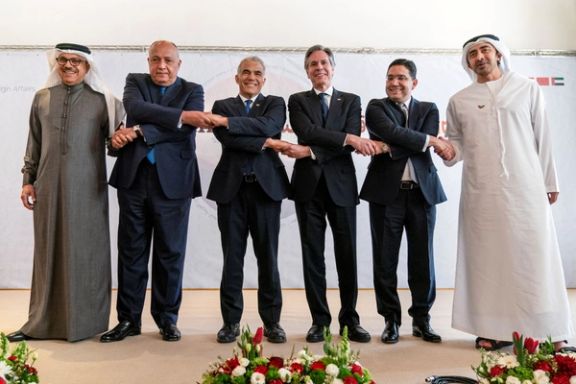
With growing talk in Washington and Tel Aviv of a ‘military option’ against Iran, Blinken noted the challenges the US faced in downsizing its Middle Eastern military presence.
Marginal events, significant developments
David Barnea, head of Mossad, at the Israel’s intelligence agency awards Thursday, attacked the 2015 Iran nuclear agreement as “absurd” and looked forward to a government in Tehran that was as close to Israel as was the Pahlavi Shah before the 1979 Revolution.
A review of “significant regional developments…including the current situation in Iran” was the center of Friday’s virtual meeting between US National Security Advisor Jake Sullivan with Israeli National Security Advisor Eyal Hulata, according to a White House statement. Given their “shared commitment to countering Iran’s threats to the region,” the officials “discussed the broad array of economic sanctions imposed in recent months against Iran” and “reviewed ongoing cooperation and exercises between the US military and Israel Defense Forces.”
Gabi Portnoy, an Israeli cybersecurity official, dismissed as a “marginal event” the hacking of Israeli security footage of a bombing in Jerusalem November – attributed to an Iranian hacktivist group ‘Moses Staff.’ In remarks reported by the Times of Israel Friday, Portnoy said Israel security agencies “didn’t do the minimum required.”
Artificial intelligence, unmanned vessels
In a press briefing Thursday, General Michael Kurilla, Commander of the US Central Command - which covers the Middle East and which has included Israel for a year – said adversaries would be combatted both by “values-based relationships” and the military use of artificial intelligence, including “unmanned systems...[like 100 naval] surface vessels and undersea vessels.”
The US had a “very strong military-to-military relationship” with Saudi Arabia, Kurilla said, exemplified by his discussion that morning with General Fayyad Al-Ruwaili, the Saudi chief of staff. Egypt, Kurilla noted, had a “large, modern, and powerful military” due in part to US training and equipping over 30 years.
“We’ve got to cultivate deep, abiding partnerships that can serve as a hedge against threats in the region while deterring Iran from its worst, most destructive behavior,” the CENTCOM commander said, as Tehran continued “to violate [US] sanctions,” and to “undermine regional security and stability through militia groups, ballistic missile capabilities, UAVs [unmanned aerial vehicles, or drones], and routine threats to international waterway.”
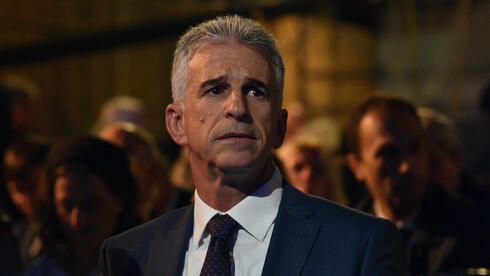
Iran is preparing more weapons deliveries to Russia and is trying to mislead the world on arming its ally, head of Israel’s Mossad, David Barnea said Thursday.
In a speech to his agency’s employees, Barnea warned about Tehran’s intentions, underlining that the Islamic Republic continues daily cyber-attacks and other machinations against Israel. He added that Mossad is ““still warning about Iran’s future and intentions, which it is trying to keep secret.”
The spy chief also called the Obama-era nuclear deal with Iran known as the JCPOA an “absurd” agreement taking aim at the United States and its European allies who have been negotiating with Tehran to revive the accord since early 2021.
The diplomatic effort has come to an impasse as Iran is ramping up uranium enrichment but the Biden Administration and the European Union still say that diplomacy is the best option to limit Iran’s nuclear program.
“We are warning about Iran’s intention to expand its uranium enrichment program, and its intention to increase its influence over friendly Muslim countries in the region in various ways,” he said, vowing never to allow the Iran’s clerical regime to obtain nuclear weapons.
He also praised the Iranian protest movement, saying hundreds have been killed in the streets, calling it “unrestrained brutality” by regime forces.
Barnea claimed that Israel provided intelligence to its Western allies earlier in the year about Iran’s plans to provide killer drones to Russia to be used against Ukraine and insisted that Tehran is preparing more weapons deliveries to Moscow.